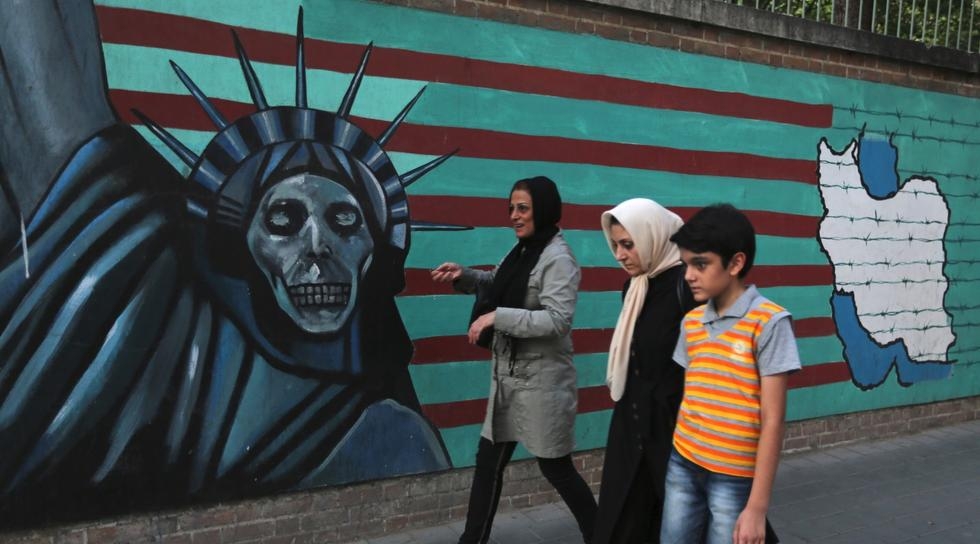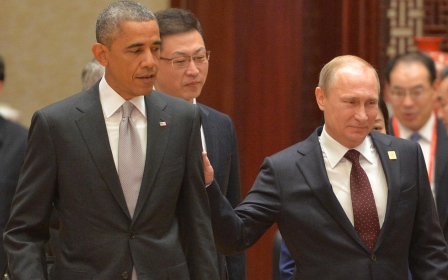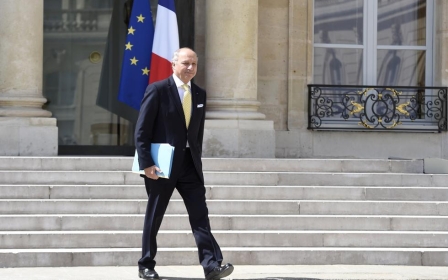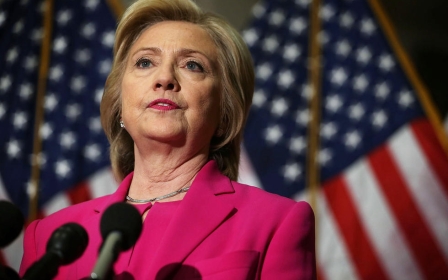US, Britain on charm offensive over Iran nuclear deal

Washington and London sought on Thursday to ease concerns over the nuclear accord with Iran, even as the Islamic republic's supreme leader warned that major powers are not to be trusted over its implementation.
As part of an international charm offensive, British Foreign Secretary Philip Hammond met Israeli Prime Minister Benjamin Netanyahu, who strongly opposes the landmark accord struck on Tuesday in Vienna between Iran and six powers including Washington.
Netanyahu has condemned the deal with Tehran as a "historic mistake" and hinted at a possible military response.
The 10-year agreement struck in Vienna this week calls for a lifting of the sanctions that have crippled the Iranian economy in exchange for measures to ensure Iran does not build nuclear weapons.
Hammond sought to reassure Israel during a visit to Jerusalem, saying "robust measures" were in place to make sure it is successful.
"Our focus now will be on swift and full implementation of the agreement to make sure that a nuclear weapon remains beyond Iran's reach," he said.
US Defence Secretary Ashton Carter is also due in Israel next week and Israeli opposition leader Isaac Herzog is to visit Washington, partly to push for security guarantees.
UN backing
The UN Security Council is now expected to endorse the deal on Monday, diplomats said.
The resolution is expected to pass without difficulty as its five veto-wielding permanent members - Britain, China, France, Russia and the United States - negotiated the accord, along with Germany.
The new resolution would replace the existing framework of seven sets of Security Council sanctions imposed on Iran since 2006, enshrining a new set of restrictions.
But a UN embargo on conventional arms sales and exports is to stay in place for five years, while trade in ballistic missiles capable of being armed with a nuclear warhead will remain for eight years.
US President Barack Obama on Wednesday said opponents to the deal in the United States and abroad had offered only a path to war.
"If 99 percent of the world community and the majority of nuclear experts look at this thing and they say this will prevent Iran from getting a nuclear bomb, and you are arguing either that it does not or that even if it does, it's temporary... then you should have some alternative," Obama said.
The issue is either resolved "diplomatically, through a negotiation, or it's resolved through force. Through war. Those are the options."
Obama's Republican rivals, who hope to scupper the agreement in a planned Congressional vote, have accused him of appeasement. The president has said he will veto any attempt to block the deal.
Obama also addressed the concerns of Saudi Arabia and other Sunni Gulf states that the accord legitimises what they see as Iranian interference in the oil-rich region.
The agreement would not end "profound differences" with Shia-majority Islamic Iran, he said, stressing that Washington's alliances in the Middle East would not be affected.
US Secretary of State John Kerry will head to the Gulf next month to allay fears over the nuclear deal.
The announcement came after Kerry held talks in Washington with Saudi Foreign Minister Adel al-Jubeir, who used the occasion to warn Iran against any further "adventures" in the region.
"If Iran should try to cause mischief in the region, we're committed to confront it resolutely," said Jubeir.
Investors eye rewards and risks in post-sanctions Iran
Meanwhile, foreign firms are eager to exploit the potential of Iran's long-isolated economy following the landmark nuclear deal, but experts say doing business there will remain hugely challenging.
With the ink barely dry, Germany said its Vice Chancellor and Economy Minister Sigmar Gabriel would visit Iran for three days from Sunday with a "small delegation of industry and science representatives".
His ministry said there was "great interest on the part of German industry in normalising and strengthening economic relations with Iran".
French Foreign Minister Laurent Fabius and Italian Economic Development Minister Federica Guidi also plan to visit Iran following the nuclear accord.
But despite the buzz over the historic agreement, analysts said Iran was no El Dorado for foreign firms.
"Doing business in Iran will not change overnight as the country suffers from an outdated legal system, restrictive labour laws and a lack of significant experience in dealing with international investors," said Firas Abi Ali, an analyst at London-based research firm IHS.
French firms, particularly in the car industry, are already well established in Iran although they have suffered from the international sanctions imposed since 2006.
"Companies set to benefit most immediately" from the rollback of sanctions "are those that are already present in Iran," said Ramin Rabii, head of Turquoise Partners Group, an investment firm in Tehran. They include firms such as Danone, Airbus and LVMH.
French manufacturer PSA Peugeot Citroen, which quit Iran, its second-largest market, in early 2012, is discussing a renewed partnership with IranKhodro.
PSA said that the nuclear agreement "should allow significant progress in ongoing discussions".
Germany's BDI industry federation believes exports to Iran could rise four-fold to more than 10 billion euros ($10.9 billion) in the medium-term, up from 2.4 billion in 2014, thanks to the need to modernise industry, especially the oil sector.
Italian exports - which stood at 1.15 billion euros before the sanctions, led by machine tool sales - could reach four billion euros in 2018, according to estimates from export credit company Sace quoted in the Italian press.
'Bloated bureaucracy'
For major companies a priority is for Iran to be reconnected to the global network of SWIFT banking transactions to enable companies present in Iran to transfer funds directly to and from that country.
One area in need of urgent investment is the creaking oil sector.
Iran, which has the world's fourth-biggest oil reserves, has seen its production fall to less than three million barrels per day (bpd) since 2012.
Its oil exports have roughly halved to about 1.3 million bpd, from 2.5 million bpd in 2011.
Iran also has the world's largest reserves of gas and was the number four producer last year.
"Our priority is to develop our oil and gas fields using domestic and foreign potential," Iranian Oil Minister Bijan Zanganeh said.
He said his country wanted to "accelerate" the development of the petrochemical industry, but experts said foreign energy companies face numerous hurdles.
"Although the deal will present foreign oil and gas companies in particular with a broad range of opportunities, the operating environment in a post-sanctions Iran will almost certainly remain challenging," said Torbjorn Soltvedt, an analyst with Verisk Maplecroft.
"While Iran has committed to improving the fiscal terms offered to oil and gas companies, the country's petroleum bureaucracy remains bloated and inefficient."
Middle East Eye propose une couverture et une analyse indépendantes et incomparables du Moyen-Orient, de l’Afrique du Nord et d’autres régions du monde. Pour en savoir plus sur la reprise de ce contenu et les frais qui s’appliquent, veuillez remplir ce formulaire [en anglais]. Pour en savoir plus sur MEE, cliquez ici [en anglais].




